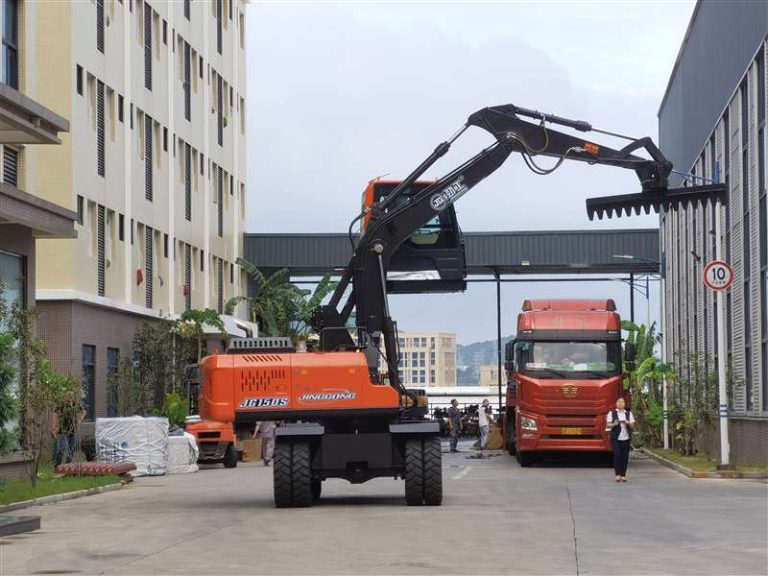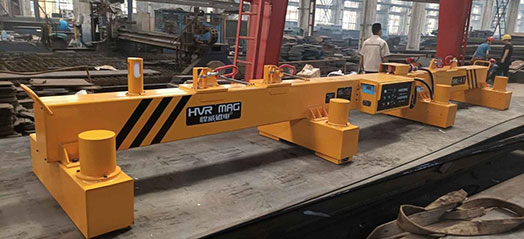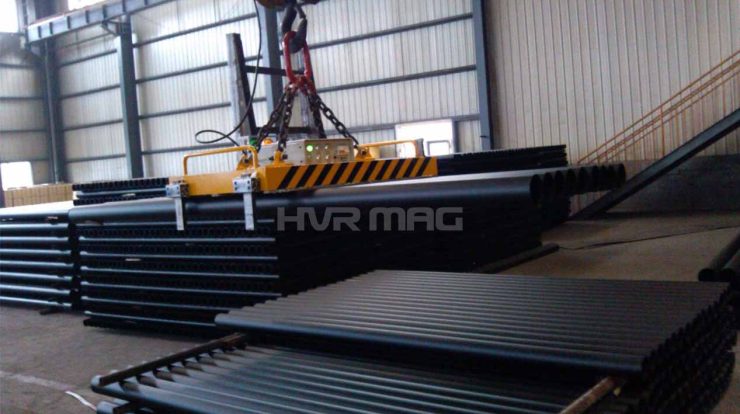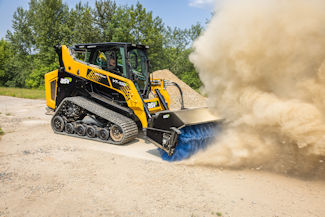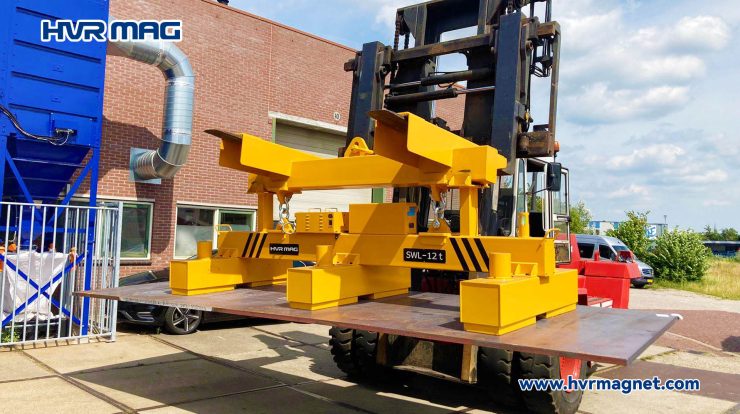How to Handle Long Thin Steel Sheets with Lifting Magnets
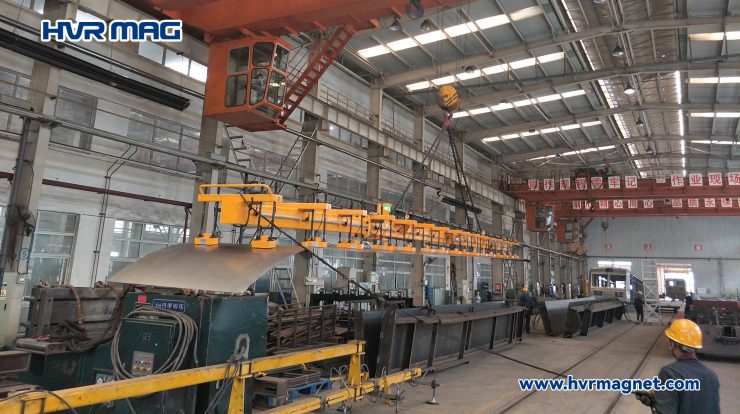
Long thin steel sheets are susceptible to warping or distortion due to internal stresses within the material. Proper storage and handling techniques can minimize these issues. Using a lifting device with evenly distributed support points can help minimize distortion during lifting or moving operations. It’s advisable to use electro permanent lifting magnets instead of vacuum lifters.
Limitation of Vacuum Lifters
Vacuum lifters are commonly used for lifting long thin steel sheets, but they also have the following drawbacks:
Uneven suction: Unstable vacuum pump pressure may result in uneven suction, making the steel sheets prone to falling or deforming, increasing the defect rate of products.
Increased maintenance costs: Vacuum suction cups are prone to wear and require frequent replacement, which increases maintenance costs. Additionally, the unstable air pressure can lead to a lower safety factor for the lifting equipment, thereby increasing the risk of accidents.
Inconvenient operation: When lifting steel plates of different lengths, the difficulty of grouping the vacuum suction cups may lead to inconvenient and cumbersome operations.
How Do Electro Permanent Lifting Magnets Solve These Problems
When using multiple electro permanent lifting magnets in combination for material handling, the suction distribution is even, which can prevent steel plate deformation and avoid the occurrence of adsorbing the second plate. Furthermore, the magnetic force of the electro permanent lifting magnet will not be lost due to power failure, which has advantages in terms of safety and energy efficiency.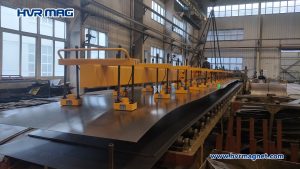
Advantages of Electro Permanent Lifting Magnets
The electro permanent magnetic lifting device provides uniform suction, avoiding issues like deformation and adhesion of steel plates. Furthermore, the operation of these lifting devices is relatively simple, which can improve lifting efficiency.
Compared to other lifting equipment, electro permanent lifting magnets have a higher safety factor. Additionally, due to their simple design, convenient operation, and absence of hydraulic oil leakage, they can effectively reduce safety hazards during the lifting process.
Conclusion
Overall, successfully handling long thin steel sheets requires careful planning, appropriate equipment, and adherence to safety protocols. For more information, please contact HVR MAG at export@hvrmagnet.com

